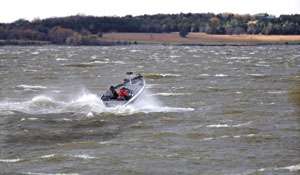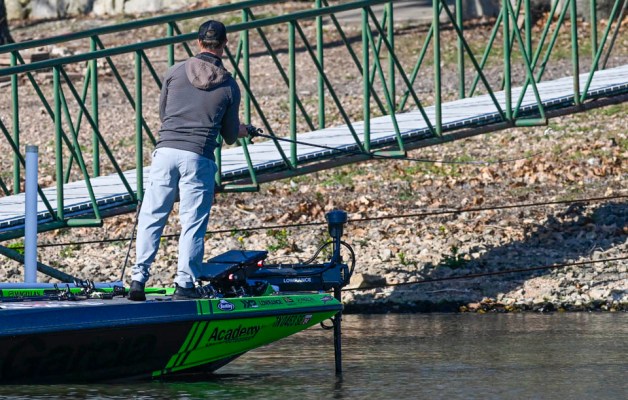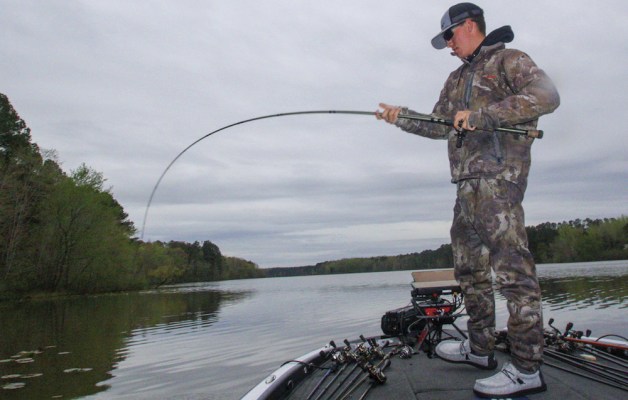
When you spend more than 20,000 miles a year with bass boat in tow, you learn important tricks that keep you safe, comfortable and efficient. Pros including Ish Monroe and Skeet Reese (California), Gary Klein (Texas), Mike Iaconelli (New Jersey) and Dave Wolak (North Carolina) log that many miles and more traveling from home to Elite tourney destinations.
And they know the problems one can encounter on long hauls. "Long distance towing is a different animal than hookin' up for a day trip to a local lake," says Toyota Tundra pro Dave Wolak. "Regardless of where you're going, you have to think safety. But there are other matters to consider when making long trips." Because they're on the road so often, most pros opt for SUVs or beefy trucks with extended cabs — vehicles that provide the comfort, power and storage needed for road weary BASSers.
Klein drives a diesel-powered Ford 250, Monroe captains a Chevy K2500 diesel, and Iaconelli and Wolak tow with gas-powered Toyota Tundra trucks. "When I travel, I have my office and livelihood with me, so an oversize vehicle is like an insurance policy," said Klein.
Iaconelli says powerful, well-built tow vehicles are important for a number of reasons, and safety is at the top of the list. "You need the power to get up and down hills and to give you total control of the boat, not let the boat control you," he explained. "I used to tow with a 4-cylinder and I struggled in the hills. When I got my full-size Tundra, I never knew the boat was back there and kept looking in the mirror to make sure it hadn't fallen off!" Iaconelli says recreational anglers towing bass rigs might get away with a smaller vehicle for fishing local lakes, but they're still flirting with danger. "You need a vehicle that controls the boat; one that has the brakes capable of stopping it," he advised. "You don't have that with small vehicles." Furthermore, say the pros, you actually lose a fuel economy advantage with smaller vehicles that have to work twice as hard and can't take the abuse.
The pros also need spacious cabs that provide storage space and comfort. Within those cabs, you'll likely find quality CD players and stereo systems to keep anglers occupied while traveling down the road. Toyota pros say their built-in GPS screens that also provide viewing of the trailer hitch when the truck is in reverse is a major asset for quick trailer hook-ups. In addition, several pros have added a Trailer Trapper Ball Mount (www.trailertrapper.com) that has a special mount that keeps the trailer coupler in place. "I use that and a lock to keep it secure," Iaconelli explained. "I've seen those hitches come lose and this will keep it locked and secure."





